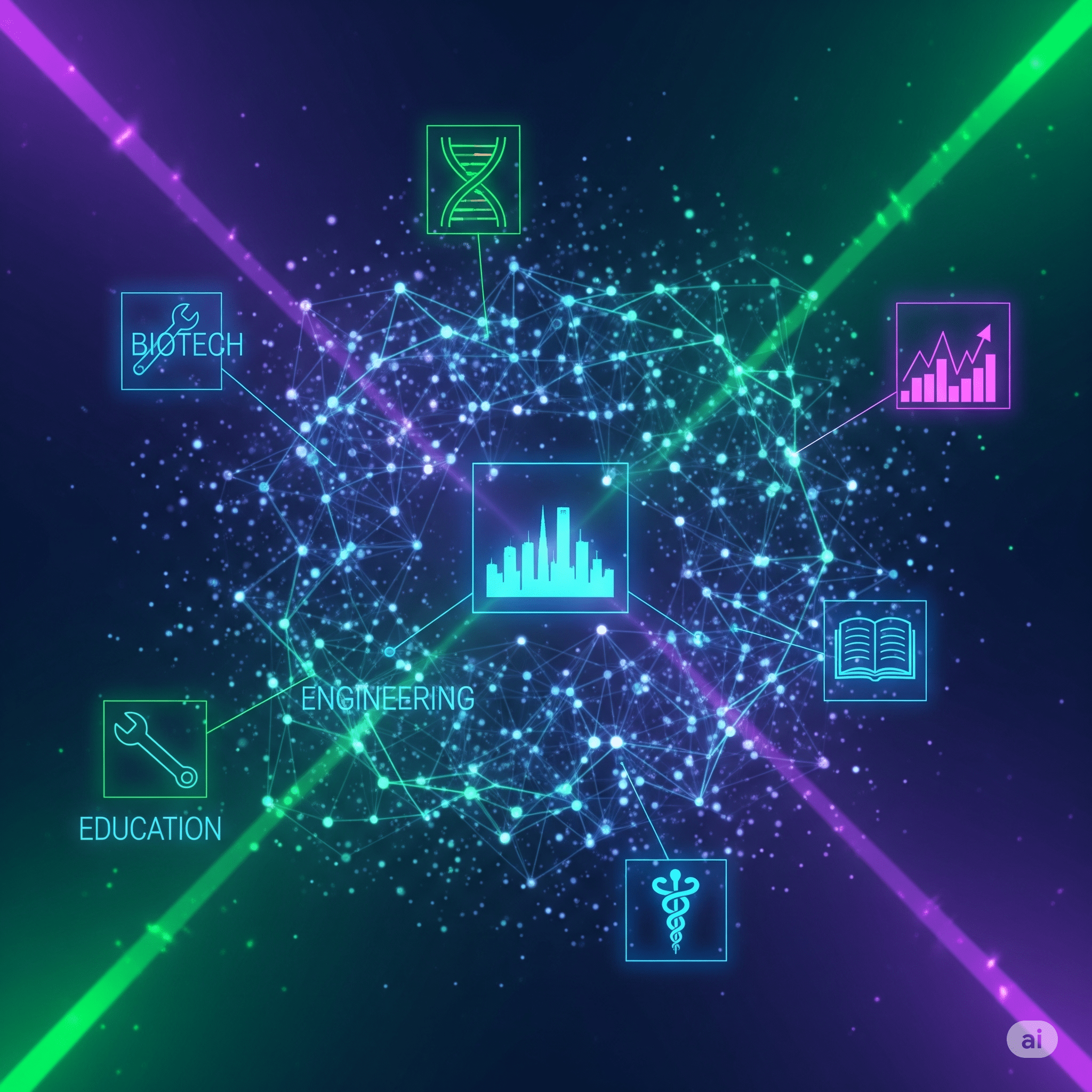For decades, Artificial Intelligence (AI) has steadily infiltrated various aspects of our lives and professions. From automating mundane tasks to powering sophisticated algorithms, its influence is undeniable. However, a new paradigm is on the horizon, promising to amplify AI’s capabilities exponentially: Quantum AI. This fusion of quantum computing and artificial intelligence is not just an incremental improvement; it represents a fundamental shift in computational power, poised to unleash a wave of innovation and profoundly alter the landscape of future professions. Understanding the potential Quantum AI impact is no longer a futuristic exercise; it’s a strategic imperative for individuals and organizations alike to prepare for the transformations ahead.
While classical computers store information as bits representing 0 or 1, quantum computers leverage the principles of quantum mechanics to use “qubits.” Qubits can exist in multiple states simultaneously (superposition) and can be linked together in complex ways (entanglement). This allows quantum computers to perform certain types of calculations far faster and more efficiently than even the most powerful supercomputers today. When this immense computational power is applied to AI algorithms, the Quantum AI impact becomes truly revolutionary, unlocking possibilities that are currently beyond our reach.
Understanding the Core of Quantum AI Impact
The convergence of quantum computing and AI isn’t just about speed; it’s about enabling entirely new approaches to problem-solving. Classical AI relies on vast amounts of data and iterative processes to learn patterns. Quantum AI, leveraging quantum algorithms, can potentially analyze exponentially larger datasets, identify subtle correlations invisible to classical AI, and develop more sophisticated and efficient models. This fundamental shift will have a cascading Quantum AI impact across numerous sectors and, consequently, the professions within them.
Supercharged Machine Learning and Optimization
One of the most significant areas of Quantum AI impact will be in the realm of machine learning. Quantum algorithms can accelerate the training of complex AI models, allowing for breakthroughs in areas like drug discovery, materials science, and financial modeling. Optimization problems, which are computationally intensive for classical computers, can potentially be solved much more efficiently by quantum AI. This could revolutionize logistics, supply chain management, and even the development of more efficient energy grids.
Enhanced Data Analysis and Pattern Recognition
The ability of quantum computers to process vast amounts of data in parallel will dramatically enhance data analysis capabilities. Quantum AI impact will be felt in fields like genomics, where researchers can analyze entire genomes to identify disease markers with unprecedented speed and accuracy. In finance, quantum AI could detect subtle patterns in market data to predict trends and manage risk more effectively. Even in cybersecurity, quantum algorithms could lead to the development of more robust encryption methods and the faster detection of sophisticated cyber threats.
New Frontiers in Artificial General Intelligence (AGI)
While still a theoretical concept, some experts believe that quantum computing could be a key enabler in the pursuit of Artificial General Intelligence – AI with human-level cognitive abilities. The sheer computational power offered by quantum systems might be necessary to simulate the complexity of the human brain and develop truly general-purpose AI. The realization of AGI would have a profound Quantum AI impact on virtually every profession, raising fundamental questions about the future of work itself.
The Quantum AI Impact on Specific Professions
The transformative power of Quantum AI impact will not be uniform across all professions. Some roles may be automated or augmented significantly, while entirely new specializations are likely to emerge.
Reshaping Existing Roles
- Data Scientists and Analysts: While the demand for these professionals will likely increase, their skillsets will need to evolve. They will need to understand quantum data analysis techniques and how to leverage quantum AI algorithms. Tools like Tableau and Power BI might integrate quantum computing capabilities in the future, requiring users to adapt to these new features.
- Drug Discovery and Materials Scientists: Quantum AI’s ability to simulate molecular interactions will accelerate the discovery of new drugs and materials. Professionals in these fields will need to collaborate with quantum computing specialists to utilize these powerful new tools.
- Financial Analysts and Risk Managers: Quantum AI could revolutionize financial modeling and risk assessment. Professionals in this sector will need to understand quantum algorithms for portfolio optimization and fraud detection.
- Logistics and Supply Chain Managers: Quantum optimization algorithms can lead to more efficient supply chains and logistics networks. Professionals in these roles will leverage quantum AI-powered tools to optimize routes, inventory management, and resource allocation.
The Rise of New Quantum-Enabled Professions
The Quantum AI impact will also lead to the creation of entirely new roles that we can only begin to imagine. These might include:
- Quantum AI Engineers: Specialists in developing and deploying quantum AI algorithms and software.
- Quantum Data Scientists: Experts in preparing, processing, and analyzing quantum data.
- Quantum Algorithm Designers: Professionals focused on creating novel quantum algorithms for specific AI applications.
- Quantum Security Specialists: Experts in developing and implementing quantum-resistant security measures.
- Quantum Ethicists: Professionals who will grapple with the ethical implications of advanced Quantum AI.
Case Study 1: Quantum AI in Pharmaceutical Research
A hypothetical pharmaceutical company, “QuantumPharm,” partnered with a quantum computing firm to accelerate its drug discovery process. By using quantum AI algorithms, they were able to simulate the interactions of drug candidates with target molecules far more accurately and efficiently than with classical methods. This drastically reduced the time and cost associated with identifying promising drug leads, leading to the discovery of a potential breakthrough treatment for Alzheimer’s disease in a fraction of the typical research timeline. The company hired specialized Quantum AI engineers and retrained their medicinal chemists in basic quantum computing concepts to facilitate this collaboration.
Case Study 2: Quantum AI for Financial Portfolio Optimization
“QuantInvest,” an investment management firm, explored the use of quantum AI to optimize investment portfolios. Leveraging quantum algorithms, they could analyze a much larger number of variables and potential market scenarios simultaneously, leading to the creation of more resilient and higher-performing portfolios compared to those managed with classical AI techniques. The firm employed quantum data scientists to manage the complex quantum data and quantum algorithm designers to tailor the optimization algorithms to their specific investment strategies.
Preparing for the Quantum AI Revolution
The Quantum AI impact is not an immediate threat to most current professions, but it’s crucial to start preparing for this transformative shift. Here are some steps individuals and organizations can take:
For Individuals:
- Focus on Foundational Skills: Strong analytical, problem-solving, and critical thinking skills will remain essential, regardless of the technological advancements.
- Embrace Lifelong Learning: Be prepared to continuously learn and adapt to new technologies and skill requirements. Consider online courses and certifications in areas related to AI and quantum computing. Platforms like Coursera offer relevant courses.
- Develop Interdisciplinary Skills: The intersection of quantum computing and AI requires individuals who can bridge the gap between these two fields. Consider developing knowledge in both areas.
For Organizations:
- Invest in Research and Development: Explore the potential applications of quantum AI within your industry and invest in pilot projects.
- Foster Collaboration: Partner with quantum computing companies and research institutions to gain access to expertise and resources.
- Upskill Your Workforce: Provide training opportunities for your employees to develop foundational knowledge in AI and quantum computing. Consider utilizing AI-powered learning platforms to personalize the upskilling process.
- Stay Informed: Continuously monitor the advancements in quantum computing and AI to anticipate future trends and adapt your strategies accordingly, as highlighted by industry reports from sources like McKinsey.
Navigating the Ethical Landscape of Quantum AI Impact
As with any powerful technology, the Quantum AI impact raises significant ethical considerations. The enhanced capabilities of quantum AI could lead to more sophisticated surveillance technologies, the potential for biased algorithms operating at an unprecedented scale, and questions around data privacy and security in a post-quantum world. It will be crucial for researchers, policymakers, and the public to engage in thoughtful discussions to establish ethical guidelines and regulations that ensure the responsible development and deployment of Quantum AI.
Your Business Is Failing Without These AI Personal Assistants
The Dawn of a New Computational Era
The fusion of quantum computing and artificial intelligence heralds a new era of computational power and innovation. The Quantum AI impact has the potential to solve some of humanity’s most challenging problems and unlock unprecedented opportunities across various professions. While the full extent of this impact is yet to be seen, understanding its fundamental principles and preparing for its arrival is essential for navigating the future of work. By embracing lifelong learning, fostering interdisciplinary skills, and engaging in proactive planning, individuals and organizations can position themselves to thrive in the quantum-powered world of tomorrow. The quantum leap in AI is coming, and those who are ready will be the ones to shape its transformative potential.
AI in the Metaverse is Revolutionizing Professional Training



